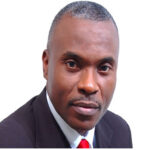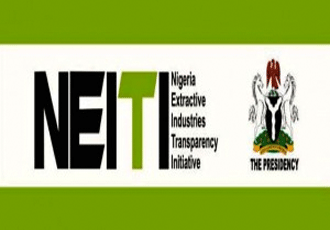
Presidents of the Nigerian Medical Association and the Medical and Dental Consultants Association of Nigeria, have faulted the report by a media organisation (not PUNCH) that two-thirds of Nigerian doctors and nurses demand bribes before attending to patients.
The news report, which referred to the recently released report by the National Bureau of Statistics, stated that “42 per cent of health workers received bribes to speed up the procedure and 15 per cent also took bribes to make the finalisation of the procedure possible.”
However, the associations expressed worry and surprise over the report, asserting that the medical practice was still faring strongly and maintains high ethical standards despite the mass exodus of health workers and underfunding of the sector.
The report titled, “Corruption in Nigeria: Patterns and Trends Third survey on corruption as experienced by the population”, was prepared by the Data, Analytics and Statistics Section of the Research and Trend Analysis Branch, United Nations Office on Drugs and Crime, while the survey implementation, fieldwork, data preparation was done by the NBS.
The report noted that in 2023, about 56 per cent of Nigerians had at least one contact with a public official in 2022.
Of this figure, 30 per cent had contact with healthcare professionals, while 24 per cent interacted with public utilities officers.
However, the NBS and UNDOC report showed that of the 30 per cent of Nigerians who had contact with healthcare professionals, only four per cent paid a bribe or were asked to pay a bribe and refused.
The report listed bribery as a direct or indirect request meant to facilitate a procedure, a sign of appreciation and a third-party request.
Additionally, the report revealed that about N721bn was paid in cash bribes to public officials, and ranked corruption as fourth among the most important problems affecting the country in 2023.
In an exclusive interview with PUNCH Healthwise, the NMA president, Professor Bala Audu, stated that although he believed in the authenticity of the report due to the status of the NBS and UNODC, it was worrisome.
He noted that despite the poor remuneration and mass exodus of health professionals in the country, the remaining few continued to provide quality health care to Nigerians.
“First and foremost, the report indicates that doctors and nurses are the most highly demanded services by adults in Nigeria. Thirty per cent of Nigerian adult access care from doctors and nurses. As against any public institution in this country, doctors and nurses have been indicated to be the busiest from that report.
“And we all know that we have a dwindling number of doctors and nurses in this country because of the Japa syndrome. So it means doctors and nurses are very few. Doctors and nurses remain poorly remunerated and that is one of the reasons why they are leaving the country, amongst other reasons. But they continue to work hard to provide the quality of care that people are looking for,” the NMA president maitained.
Audu asserted that the report revealed that the level of corruption among healthcare workers was the lowest when compared to the rate at which their services are sought after.
He said, “The second thing that that report also showed is that the level of corruption in the public sector is the lowest amongst doctors and nurses. It is the lowest compared to any public or private sector. That of doctors and nurses is the lowest. And what did the report say? The report said 30 per cent of adults in Nigeria, which is the highest percentage among those seeking public services, are demanding the services of doctors and nurses.
“The level of corruption that was found among the entire 30 per cent that goes to look for, among the entire population of adults who go to look for services from doctors and nurses in the public sector is four per cent.
“Now, if you apply that to the 30 per cent of the total population, it gives you 1.2 per cent. This is the lowest, and you can check this part from the complete report. We take this report very seriously.”
The don further emphasised that the report has been subjected to intensive scrutiny by statisticians and epidemiologists within the health sector for further analysis.
He noted that although the figure was the lowest in the country, it was worrisome that such was happening.
“So we are going to work on this. We are going to look for more details on the kind of bribes people are talking about and the kind of health professionals that are involved and under what circumstances. We hope that by the next report, we’ll find zero corruption within the health sector,” the NMA president posited.
Audu urged medical professionals to keep a high standard of ethics despite the current environment.
He encouraged the government to reward the high ethical standards and dedication to service that medical professionals have consistently demonstrated.
The NMA president added, “Despite the environment where we are operating, we have been vindicated that the level of ethics amongst health professionals is the highest amongst any professional group in this country and amongst any public sector. It is the highest. Look at what is happening amongst judges, the police and the customs and you’ll understand what I’m talking about.
“As for the government, I would want them to reward the high ethical standard that doctors and nurses have demonstrated and to reward our availability to service 30 per cent of the adult population of this country who are looking for our services and still maintain the lowest level of corruption.
“We have the highest level of service delivery and yet the lowest level of corruption. If you look at the entire report, some public office providers are servicing less than 10 per cent of the adult population and their corruption level is more than 70 per cent.
“So, I think the health sector should be encouraged to improve so that we can come to zero level and the other sectors should also learn from what is happening in the health sector so that they can take a leap and introduce more ethical standards in their day-to-day work.”
Also speaking with PUNCH Healtwhwise, the president of the Medical and Dental Consultants Association of Nigeria, Professor Aminu Mohammed, expressed surprise over the news report, noting that the health sector was still functioning despite its challenges.
He said, “It’s also surprising to the Association. In fact, if there is any organisation or if there is any system that is still relatively functioning despite challenges, it is healthcare. It’s the only place you can go without knowing anyone or whatever and obtain services without anyone either asking you or giving any excuses based on where you came from or what you do or whatever.
“And in most situations, we see all our patients in public, not in seclusion. So I, as a person, I’m very surprised. The Association is also very surprised that somebody can bring out this caption in particular.
“When you look at the study from the analysis, they said doctors and nurses, from their assessment, is four per cent. So if it is four per cent with others, around 10 or even more, then how will you make that caption?”
The MDCAN president further noted that the news report was denting the image of the profession.
Also, the immediate past president of the Society of Gynaecology and Obstetrics of Nigeria, Professor Oluwarotimi Akinola, described the report as very depressing to practitioners.
“Such claims, which I believe are erroneous are push factors that fuel the catastrophic haemorrhage of health workers from Nigeria,” he lamented.





